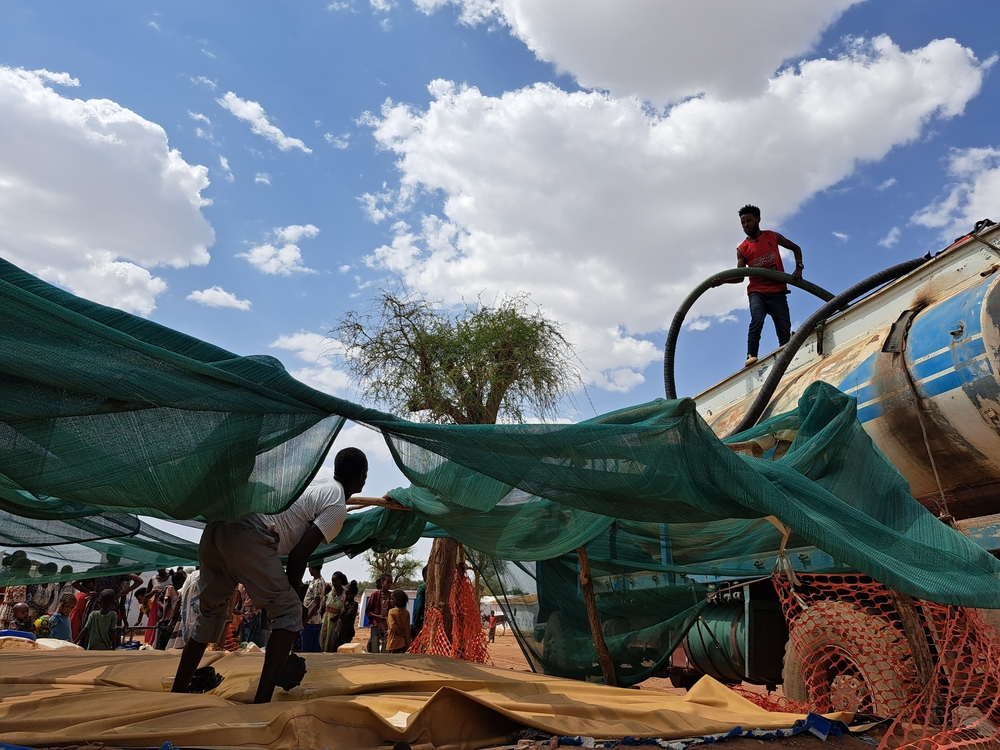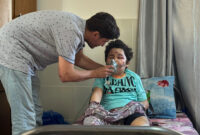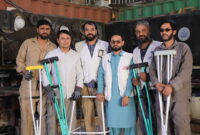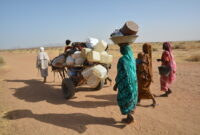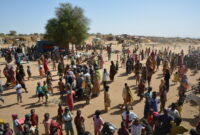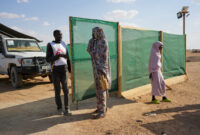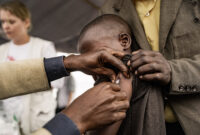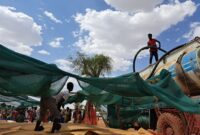Bringing the water system back to life in Tigray, Ethiopia
“I’m the water man,” says Weldekiros Assefa, an engineer and water and sanitation expert for Doctors Without Borders (MSF) in Ethiopia. “I have the best job at MSF.”
Assefa is checking water hand pumps in May Kwait, a small village in northwestern Tigray, a region in Ethiopia, where 600 hand pumps are working again after being repaired with the help of MSF. The repaired pumps restore access to clean water in a place where – not long ago – water was scarce to non-existent during two years of civil war.
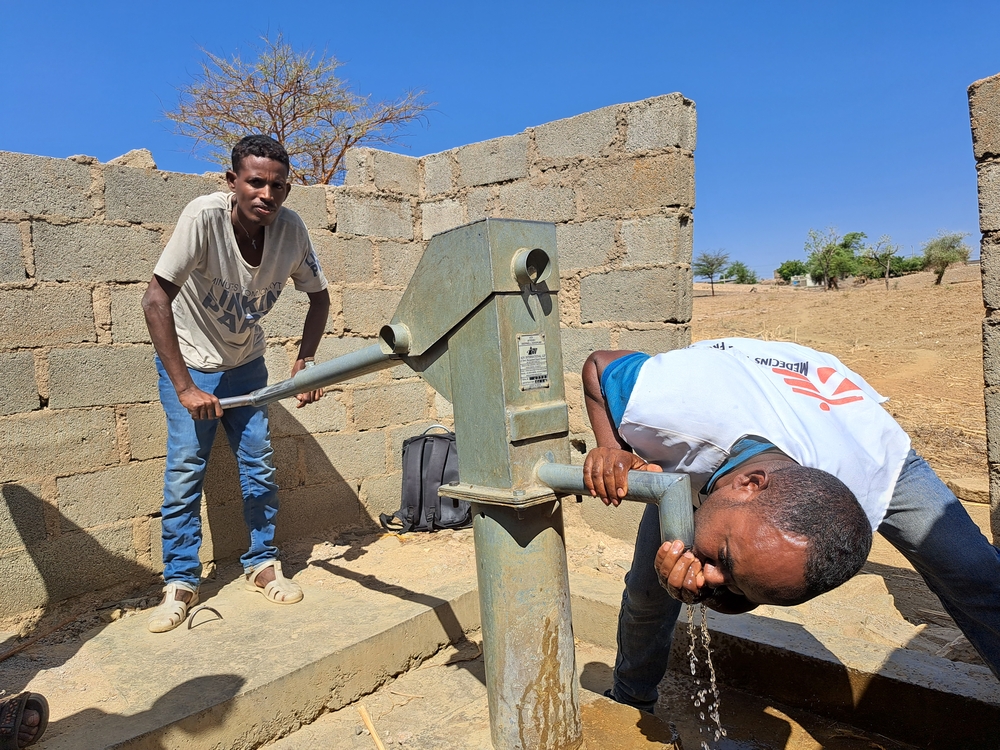
“When the fighting got really bad here and people fled into the forest for a week,” Assefa explains. “When they returned, the electricity had been cut off and the water hand pumps that many rely on for water had been dismantled and filled with stones.” They were the last working pumps in the area.
The people of May Kwait were left with no choice but to walk 1.5 km to fetch water from the river. Many became ill with diarrhoea. Whatever water people had was mainly used for cooking and drinking, but not for washing – increasing the risk of skin diseases and other illnesses that spread rapidly without access to hygiene.
MSF returns to Tigray
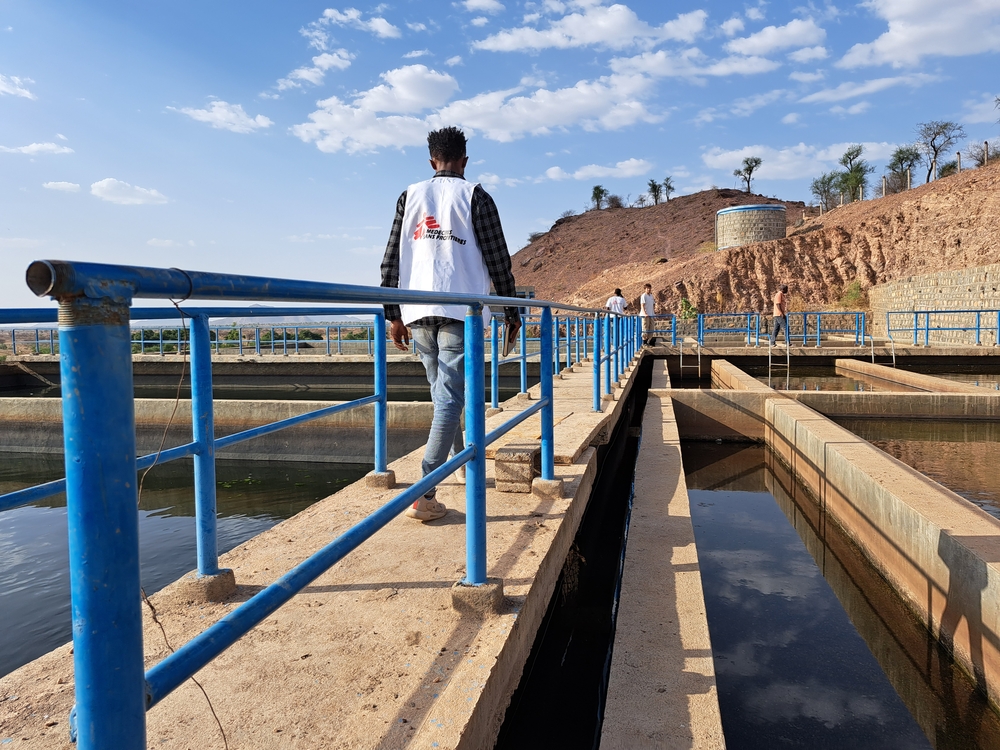
When MSF teams were able to return to Tigray in November 2022, the region was emerging from a devastating two-year civil war. The war caused significant damage to infrastructure, whether due to lack of maintenance, intentional destruction, or the fighting. Health facilities were hardly functioning.
Among MSF’s first priorities was rehabilitating health facilities’ water systems and re-establishing a functioning waste management system. In Shire’s Suhul hospital, for instance, the team managed to get safe water flowing again and built latrines, showers, and areas for washing. They also installed incinerators to ensure safe disposal of sharp, soft, and organic medical waste such as needles, syringes, soiled dressings and body parts. Most crucially, the team cleared a mountain of rubbish containing hazardous medical waste close to the facility.
Another critical goal was to bring safe water into people’s homes as a bulwark against the spread of waterborne diseases, including acute watery diarrhoea, skin and eye diseases, and those caused by parasites. The biggest fear was that the lack of access to clean water might trigger a cholera outbreak.
The medical consequences of not having access to water and sanitation
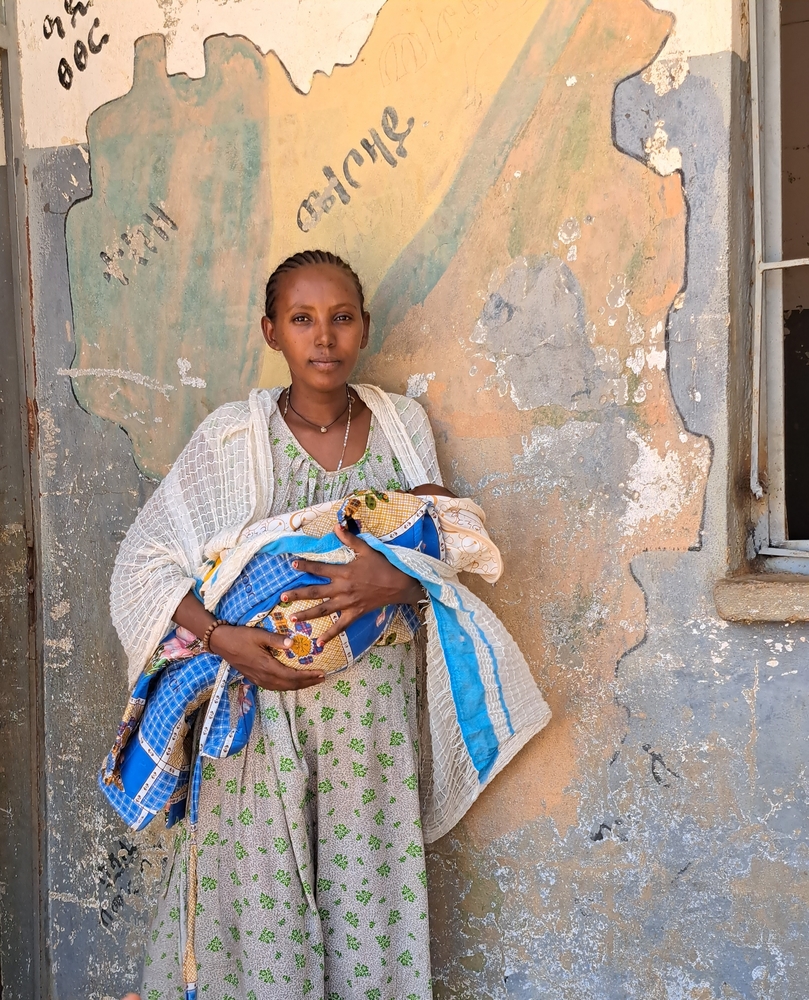
Between December 2022 and March 2023, several assessments were done in northwest and central Tigray and showed that only 34 per cent of water hand pumps were still functioning among the 2000 surveyed across 14 districts. It was critical to repair the unusable pumps ahead of the rainy season, when water sources can become contaminated from open air defecation, increasing the risk of cholera outbreaks.
When water hand pumps aren’t functioning, people will use water from lakes and rivers, which is often unsafe. “At one stage, towards the end of March, almost one in four ambulatory patients we were seeing in Tigray were suffering from preventable waterborne diseases,” says Samreen Hussain, MSF medical coordinator in Ethiopia.
At the end of April, several cases of acute watery diarrhoea were recorded in Derso, a small village south of Sheraro, after a ten-year-old boy died on his way to a rural health facility. “The conditions in the village were very poor,” says Daniel Shmondi, an MSF water and sanitation supervisor who was among the team assessing the situation in the area. “There were no wells and people were using water from the river for all purposes. Open air defecation was common practice near homes.”
In response, the team distributed water purification tablets to 120 households and checked whether other people in the village had become sick. They found that two siblings of the boy who died had severe diarrhoea, and they were then admitted to an isolation centre that MSF helped set up in Sheraro to prepare for a possible cholera outbreak. This also triggered a response at Suhul Hospital, the referral facility for the region, which is two-hour drive away.
The hospital rehabilitated its cholera treatment centre and trained staff to strengthen their ability to respond during outbreaks.
Persistent insecurity slows down recovery of water infrastructure
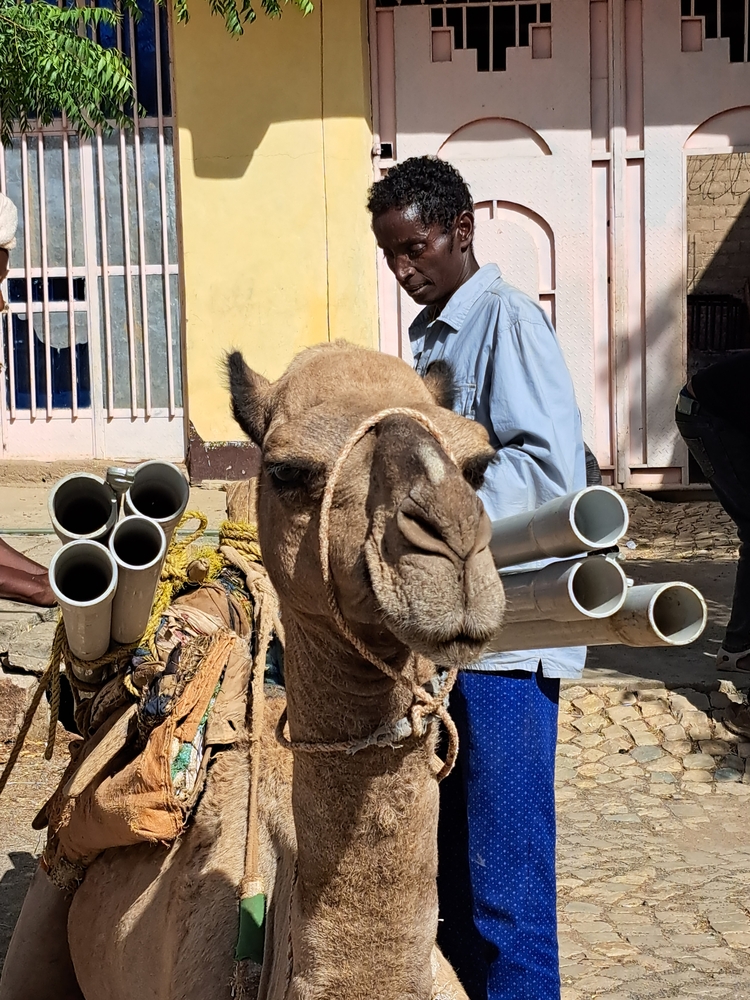
Early in the morning, Adisalem loads his camel with the spare parts he will need to repair a hand pump in Ademeyti, a village at the border with Eritrea. “In this area most people have not returned yet,” he says. “Many are still living in camps or with hosts in the community.”
Persisting insecurity has also slowed down recovery from the war. Water infrastructure in Tigray underwent costly repairs several times, only to be looted or intentionally destroyed again.
Aid organisations have been hesitant to carry out new big interventions. Pumps for the water treatment plant that provides safe water to the city of Sheraro took six months to be replaced. During that time, the city survived thanks to deliveries made by truck or donkeys. In addition, MSF provided up to 1.4 million litres of safe water for six displacement camps each day.
Where water utility technicians are not available, MSF technicians carry out the rehabilitation directly, while training new staff hired by the water administration. The objective is to act as a catalyst in the re-activation of the pre-existing public hand pump repair system.
As recovery continues, more resources and efforts will still be required to increase the availability of safe water and improve overall sanitation and hygiene conditions in parts of Tigray.
